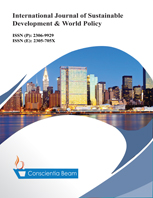The Development of Participated Environmental Education Model for Sustainable Mangrove Forest Management on Eastern Part of Thailand
Abstract
The objectives of this study were to find factors and environmental education models affecting the participation of people in sustainable mangrove forest management to develop and to evaluate participated environmental education model for sustainable mangrove forest management in the eastern part of Thailand. This study employed the mixed method and was divided into 3 steps. In the first step, the quantitative method was used for studying facts and factors affecting participation of people to solve mangrove deforestation. The sample sampling was used to selected the samples as household in Chanthaburi province by using multiple-step sampling method. The second step employed the qualitative method for environmental education models design. The aimed of this step were to analyze environmental education model for mangrove forest management in successful institutes and find important compositions of environmental education. In the last step, the environmental education model arranged activities according to the process and was evaluated by quantitative method for validation, efficiency, and appropriateness. Research findings revealed that: 1) Knowledge, understanding and experience in mangrove forest management were the important factors affecting to participation of people in mangrove forest management on the eastern part of Thailand. 2) The most appropriate environmental education model for mangrove forest management on the eastern part of Thailand contained the procedures and compositions as objective of environmental education model, content about mangrove forest management, workshop, evaluation and special factors. 3) Assessment of the environmental skill in sustainable mangrove forest management. It was found that the experimental group had their environmental skill after workshop were statistically different at .05 significant level.

